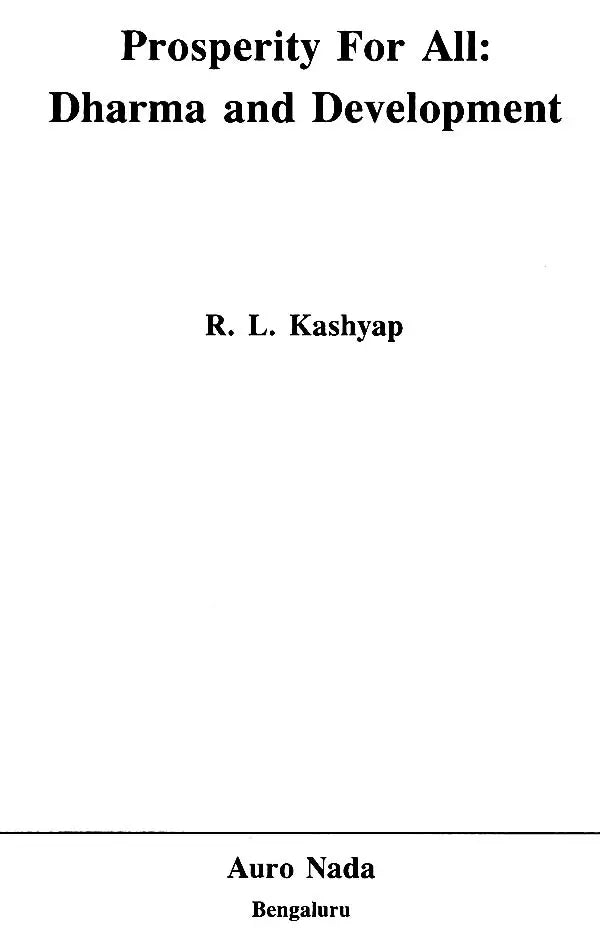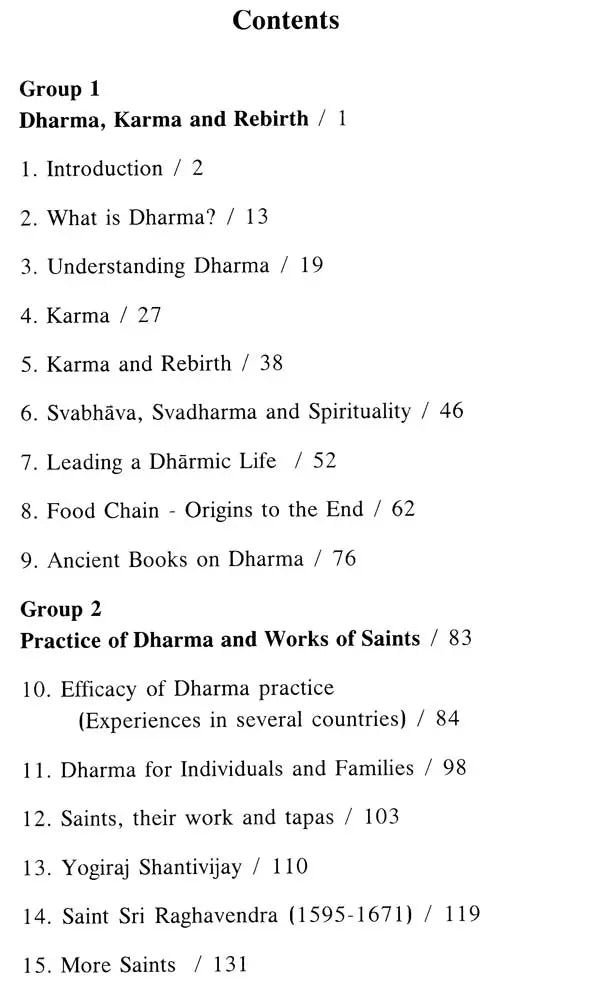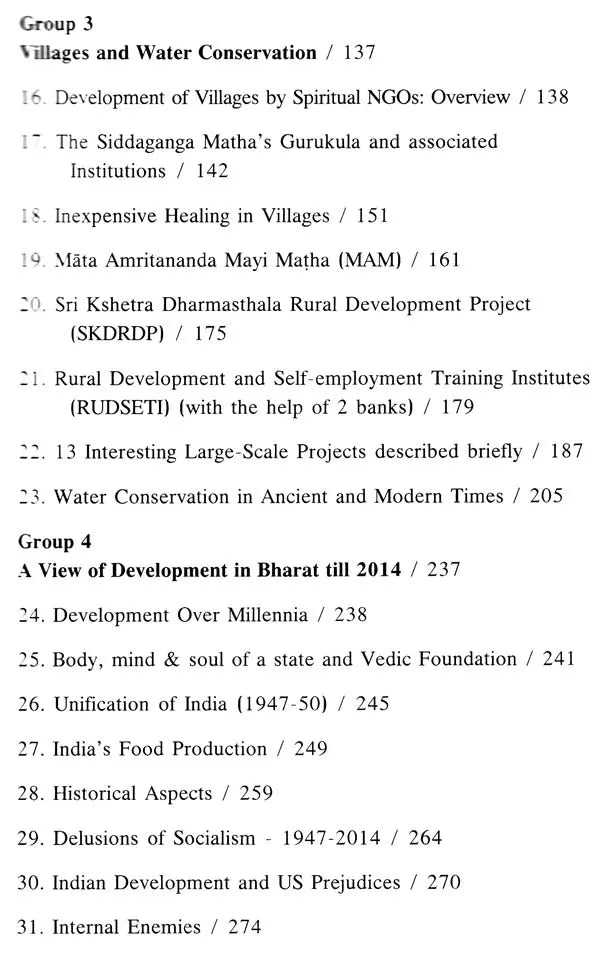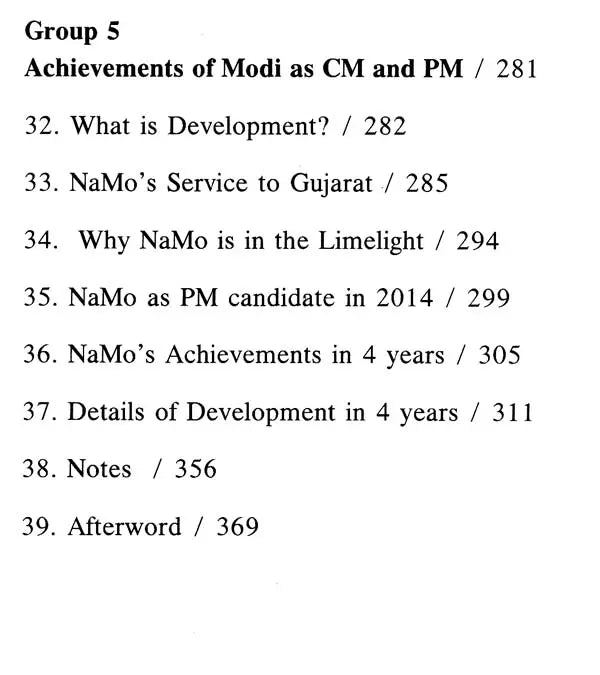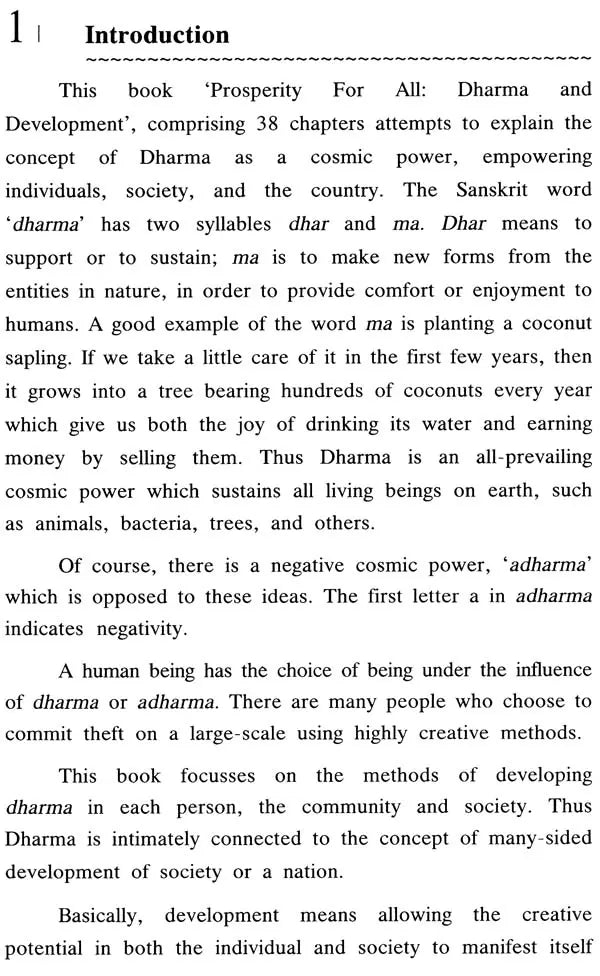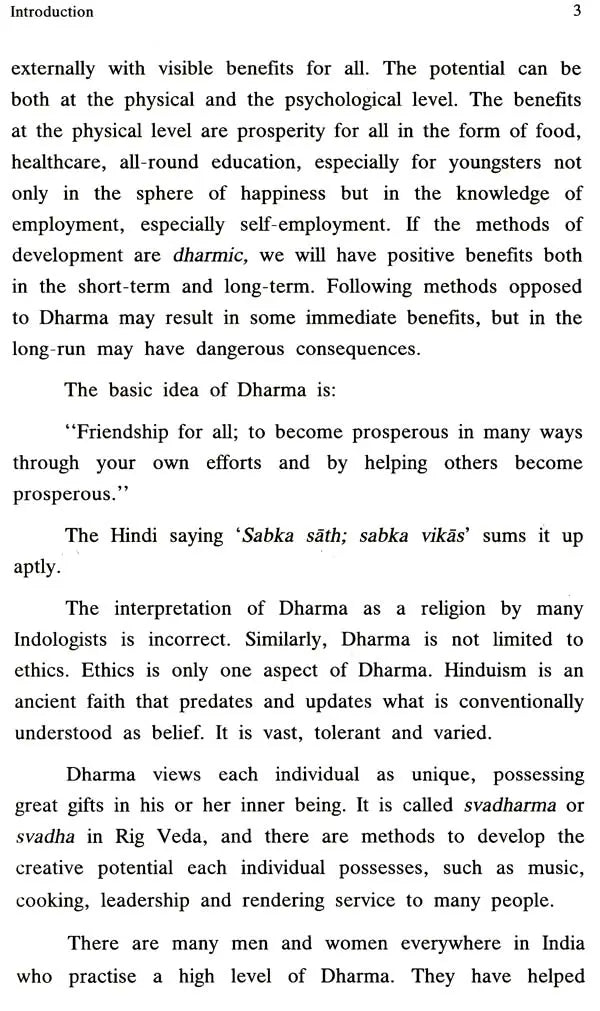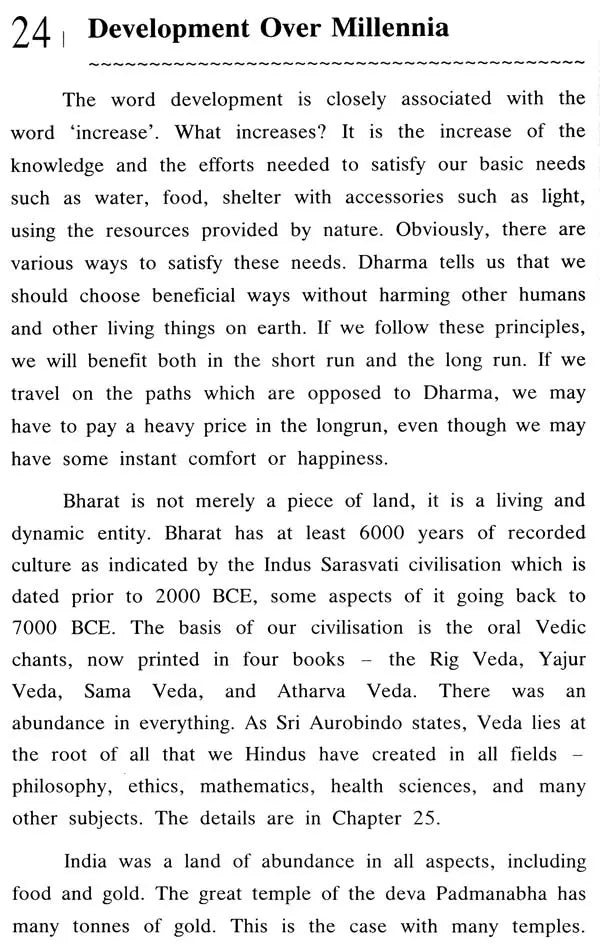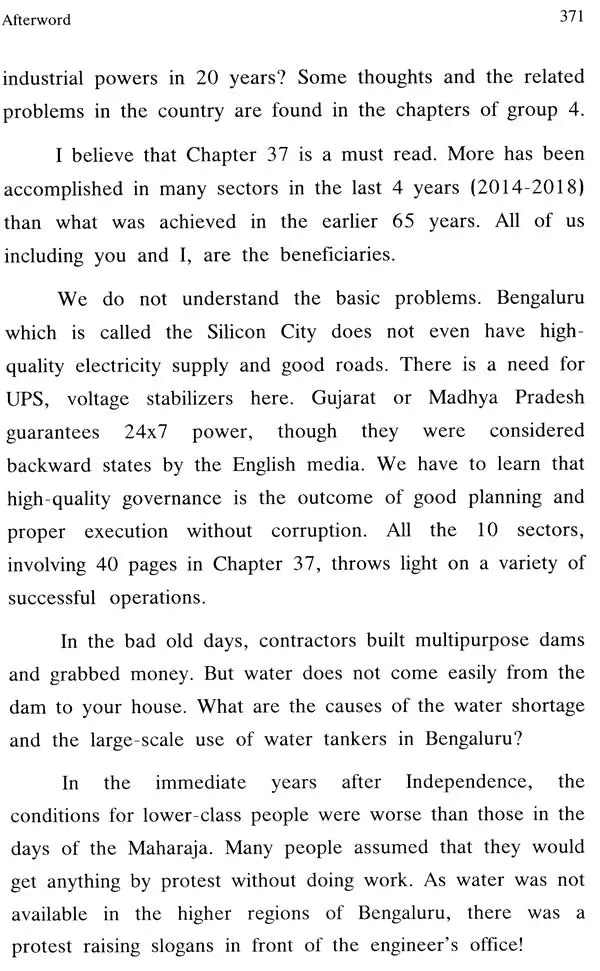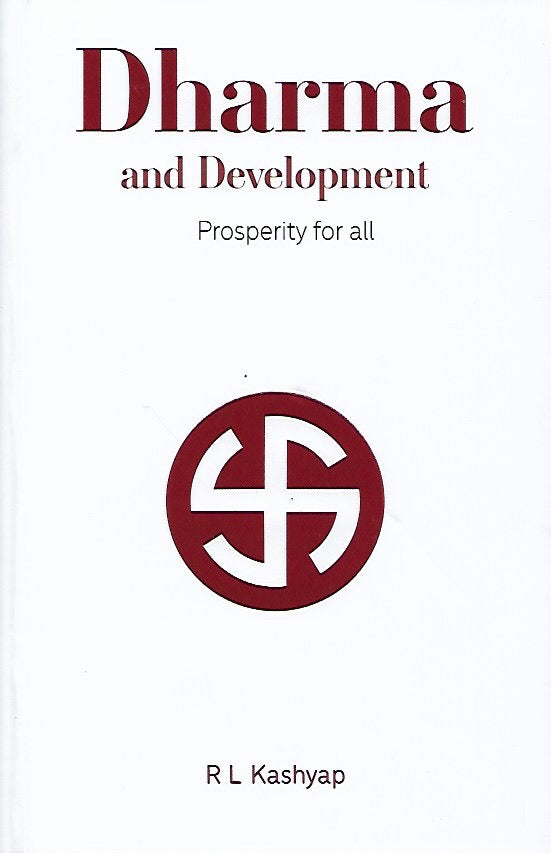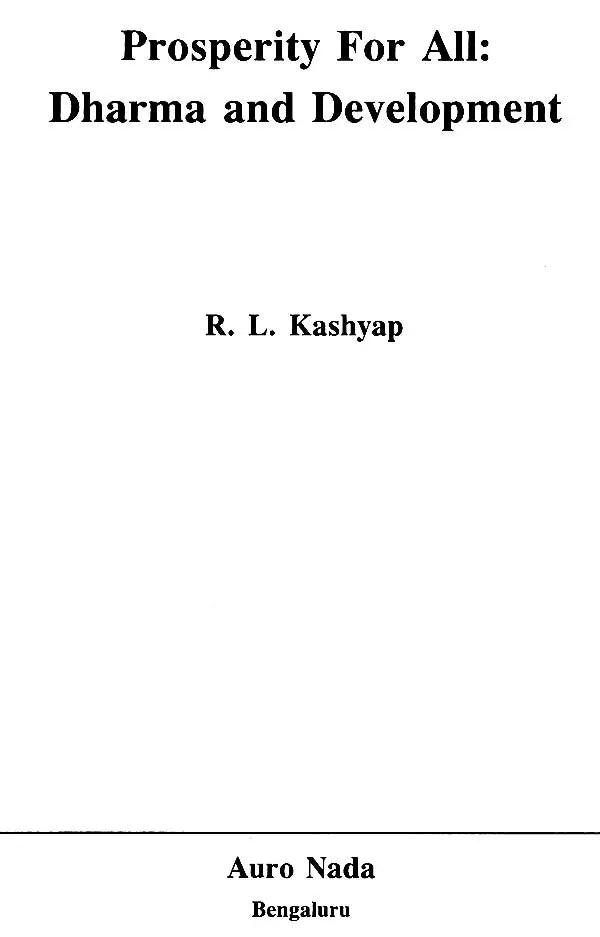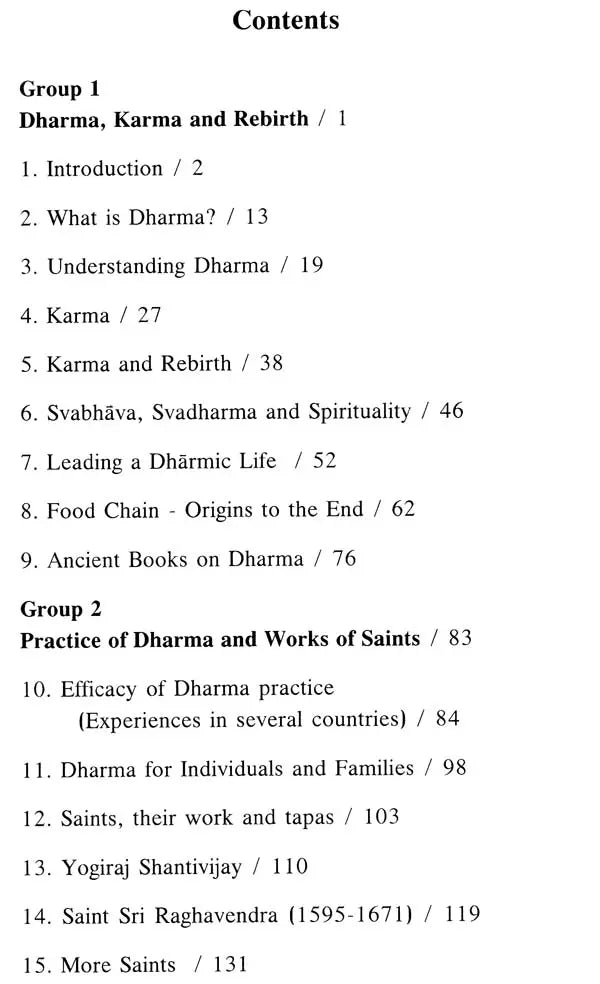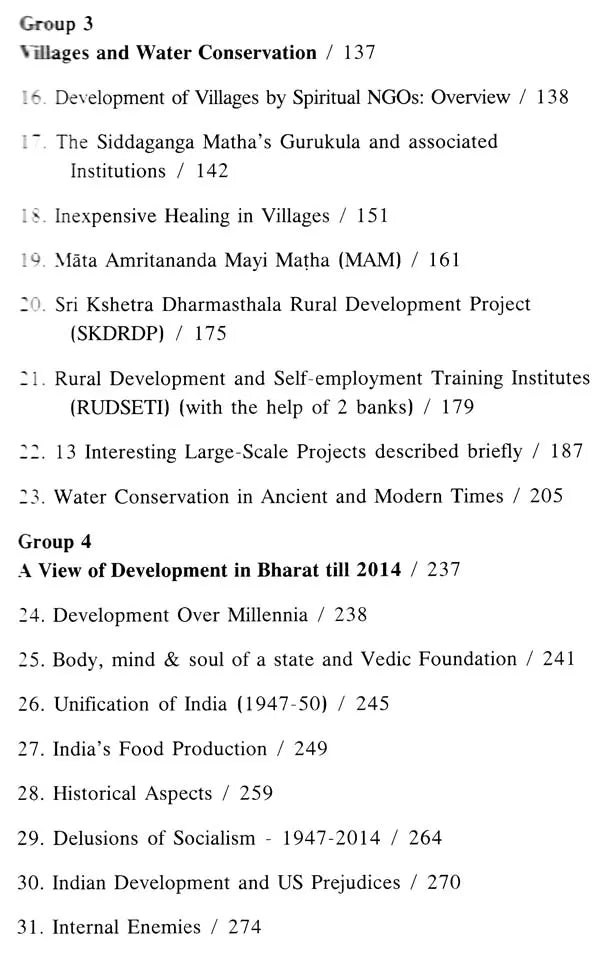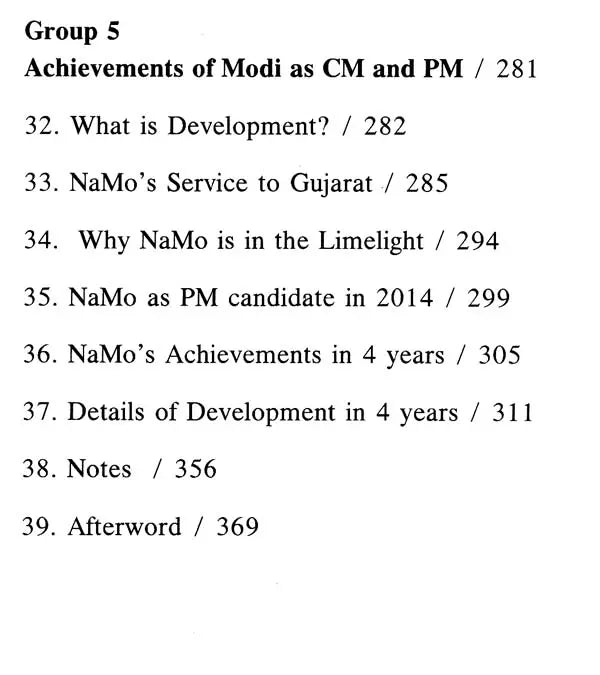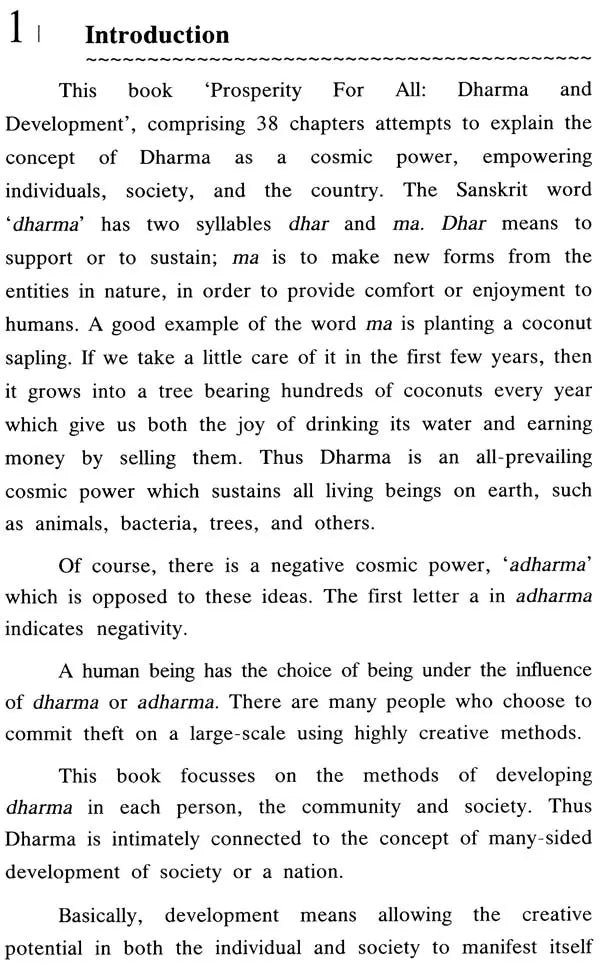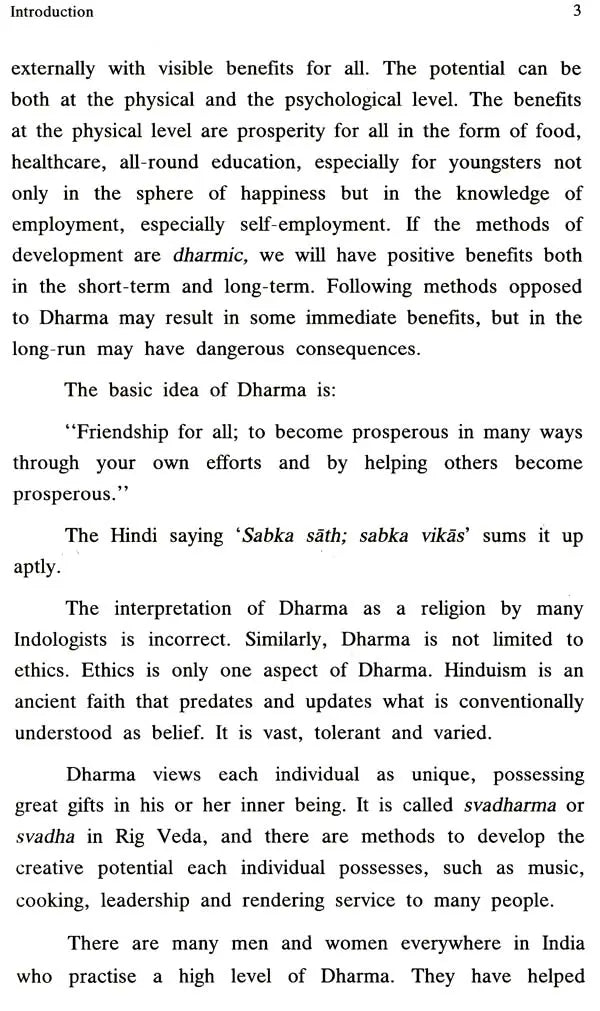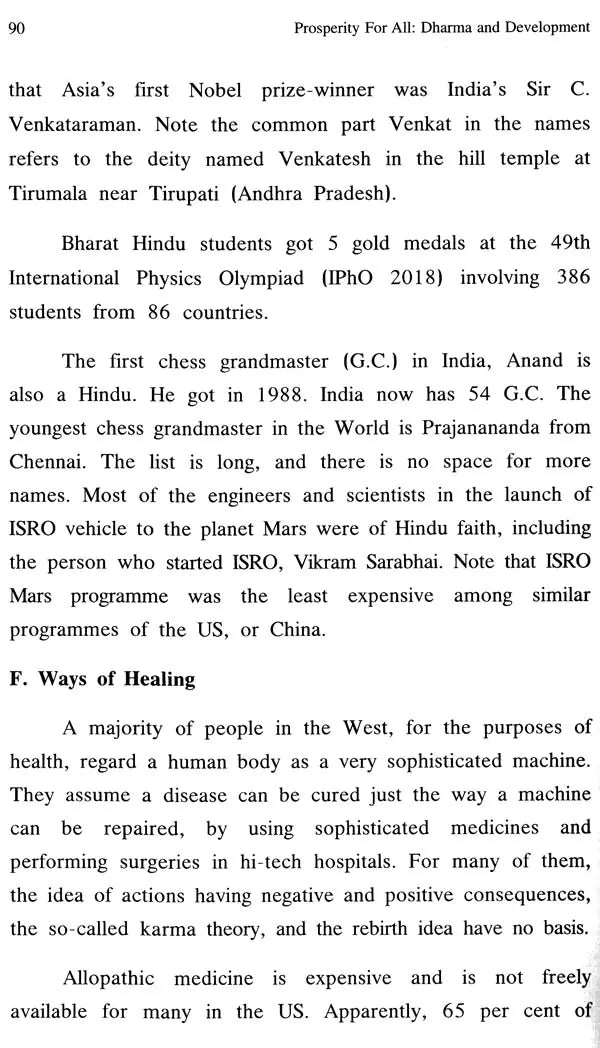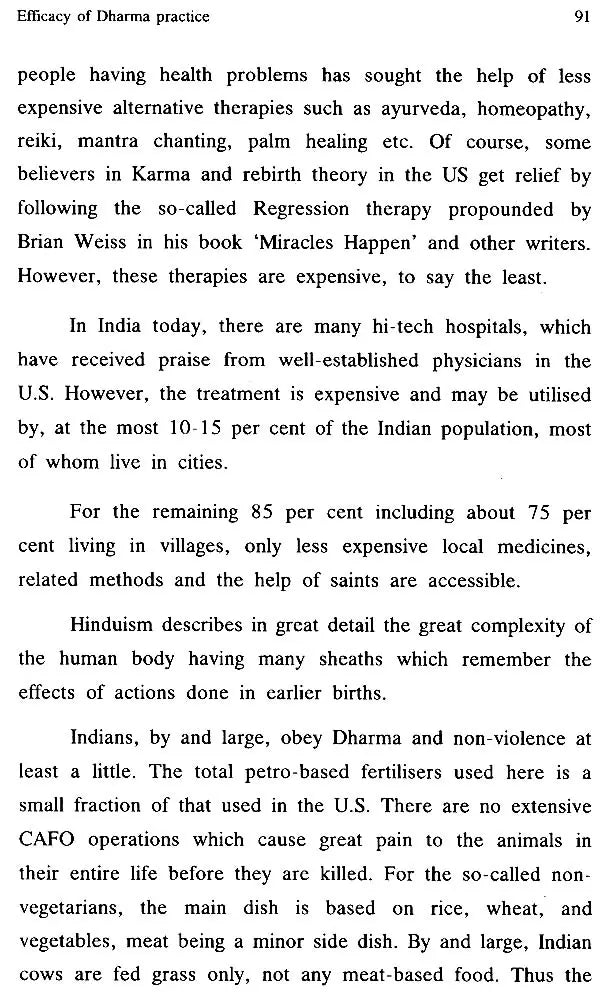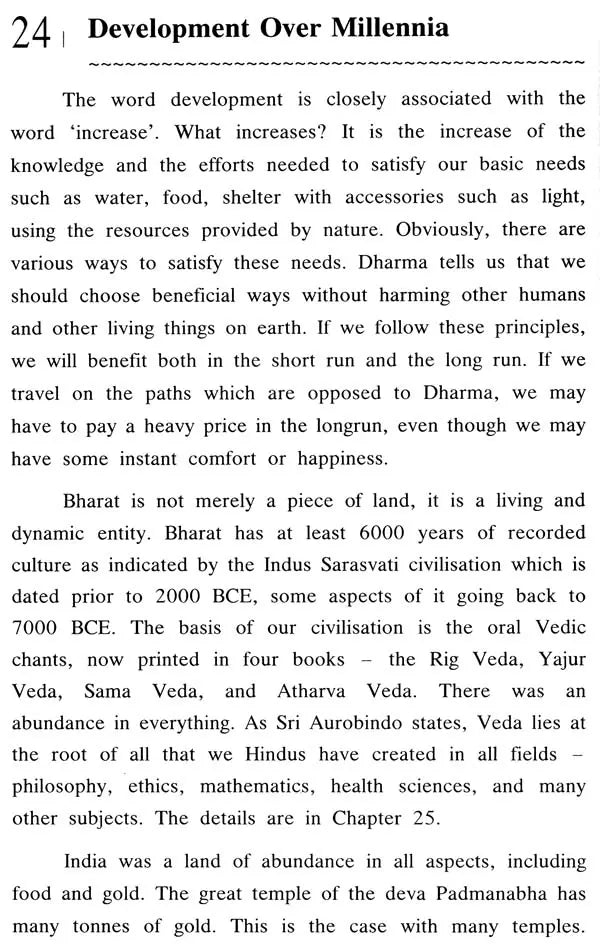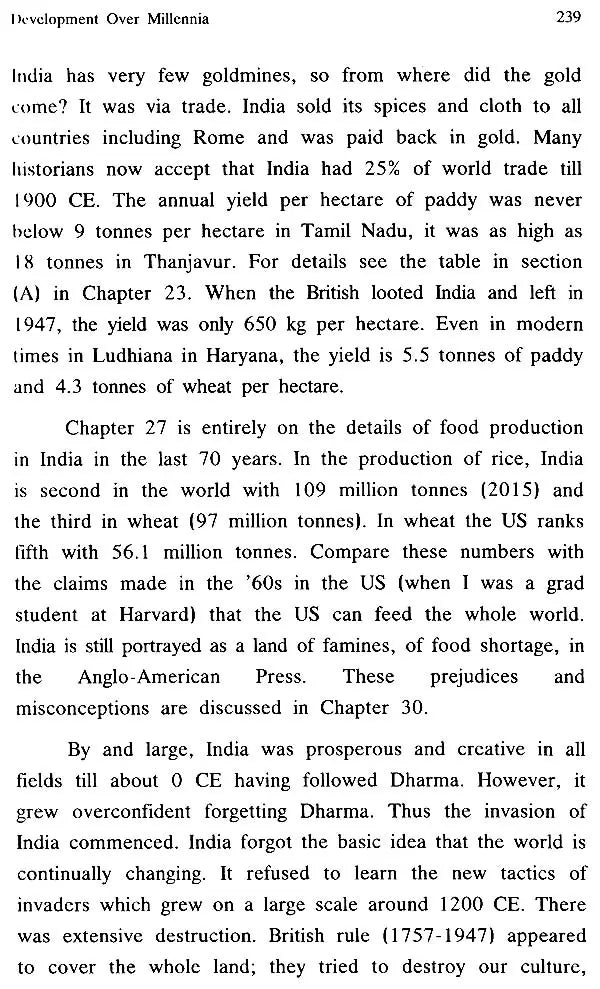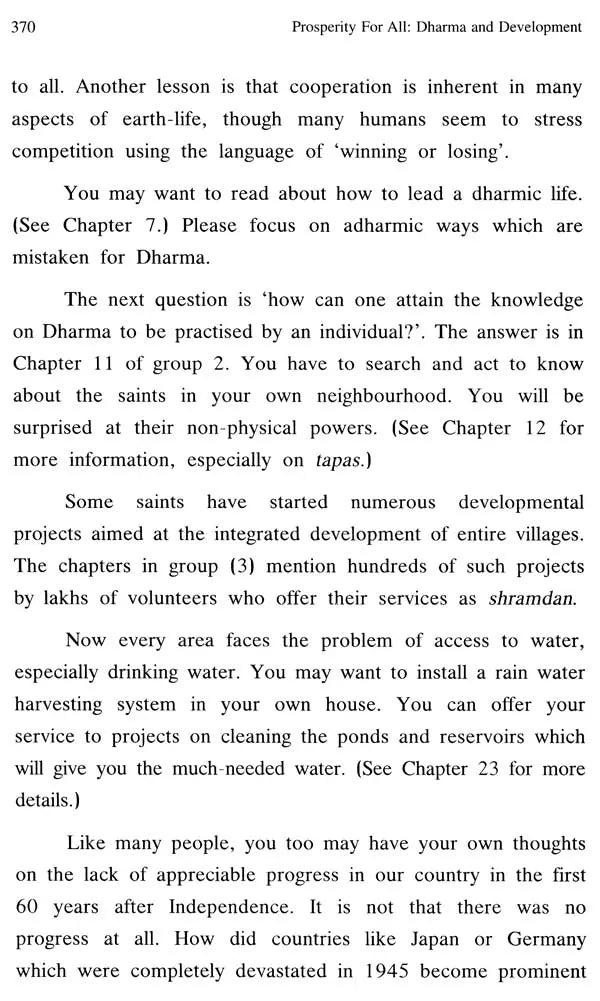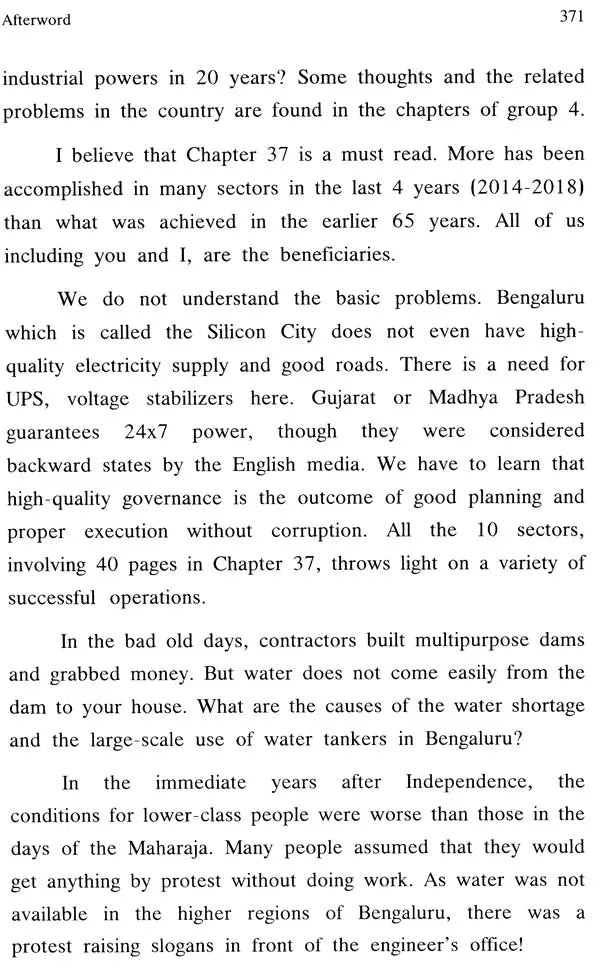SAKSHI Trust - Bangalore
Dharma and Development - Prosperity for All
Dharma and Development - Prosperity for All
Couldn't load pickup availability
The book in your hand "Dharma and Development - Prosperity for All" is an invaluable work which emerged out of the vast study of Dr. RL Kashyap. He has made a pioneering contribution to the field of Vedic Knowledge. Dr. R L Kashyap inspired by the vision of Rishis, reveals to the readers the core of Dharma and its application. The variety of examples on all aspects of life, narrated in this book are eye-openers. He has succeeded in convincing us that Dharma is the foundation for all development and prosperity.
His background in Mathematics and Engineering has worked so well in conveying the subject matter in such a way that he finally proves what he wanted to establish.
Indeed this book is a valuable contribution to the present and future generation to come.
This book is the outcome of Dr. R L Kashyap's concern towards the comprehensive development.
Technical Information
Technical Information
Author: Rangasami L. Kashyap
Translator:
Language: English
ISBN: 8179941817
Know More
Know More

